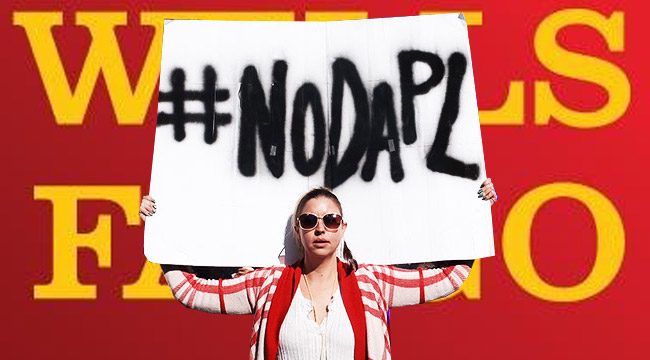The battle over the Dakota Access Pipeline has been raging for nearly nine months. A youth-orientated protest movement that started as an encampment on the Standing Rock Indian Reservation spread across Indigenous America and eventually the United States and the world. The movement is in opposition to a pipeline that threatens the tribe’s sovereignty and the drinking water of millions of people living near the Missouri River. There have been protests on the streets of America’s cities and several major stand-offs in Standing Rock.
Before President Obama left office, he stayed the progress of the pipeline’s construction so that an alternative route could be found. At the time, it felt like a massive victory, but it was shortlived, as the stay was immediately overturned after Trump’s administration assumed power. It quickly became obvious that the White House wanted the pipeline to go ahead. Since then militarized combatants have arrived at Standing Rock and violently cleared the camp in a fashion that echoes the violent Indian removals of the 18th, 19th, and 20th centuries.
Now, entire cities are joining the movement to fight the DAPL in an effort to undercut the financial footing of the pipeline’s construction. Seattle made history when it voted unanimously (9-0) to divest the city’s money from Wells Fargo bank. That’s a tidy sum of $3 billion less the bank will have in its coffers to invest in outside projects. Wells Fargo has a $120 million direct investment in the construction of the pipeline that’s part of a $467 million investment in the four Energy Transfer branches involved in the pipeline. The reasoning behind this protest divestment is to remind the bank that their depositors don’t want their money being used to invest in projects which they stand against.

Kshama Sawant, Seattle’s socialist city council member, has taken the lead on Seattle’s divestment — fighting on the side of Standing Rock. Sawant declared, “I was personally inspired as a socialist fighting for the rights of everybody to have access to clean water for all of humanity.” She continues that, “all of this is integral in my mind to our larger fight for economic justice.”
The movement in Seattle led by Sawant aims to be a launching pad to spread the divestment movement around the USA and world. Matt Remle, from the Last Real Indians, notes that they’ve already been in talks with city councils in Los Angeles, San Francisco, Silicon Valley, Portland, Raleigh, and even Berlin, Germany.
With the main camp at Standing Rock slashed and burned to the ground and the final group of protestors arrested, moving these fights into the courts and leaning on banks to divest in the project seems the logical continuation of this fight. This is truly how protest begets change.
WATCH as militarized police knife open a sheltered structure during their eviction of the main #NoDAPL encampment https://t.co/YDWKf0paPs pic.twitter.com/uuu7eGUt1l
— UNICORN RIOT (@UR_Ninja) February 23, 2017
https://twitter.com/RuthHHopkins/status/834841827912085505
https://www.instagram.com/p/BQ34WYoDi_J/
https://twitter.com/Heather28df/status/834812722017554432
This isn’t over: take up the torch and defund DAPL! by Jacqueline Fielder #NoDAPL #DefundDAPL https://t.co/FGuZqF8bW2 pic.twitter.com/kJ5c6bgoPc
— lastrealindians.com (@lastrealindians) February 24, 2017






